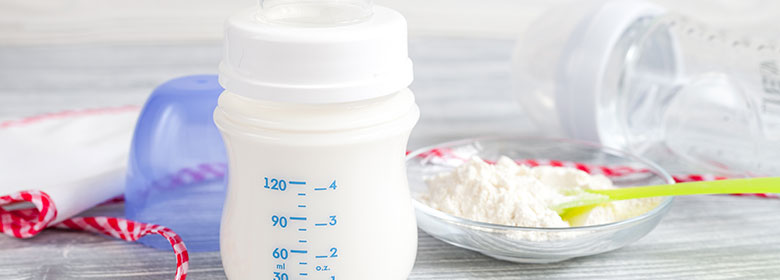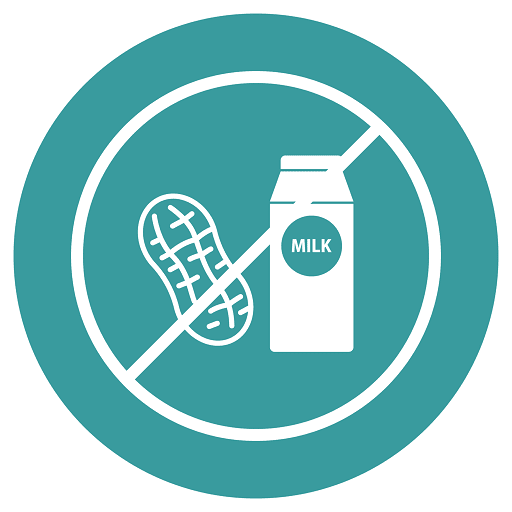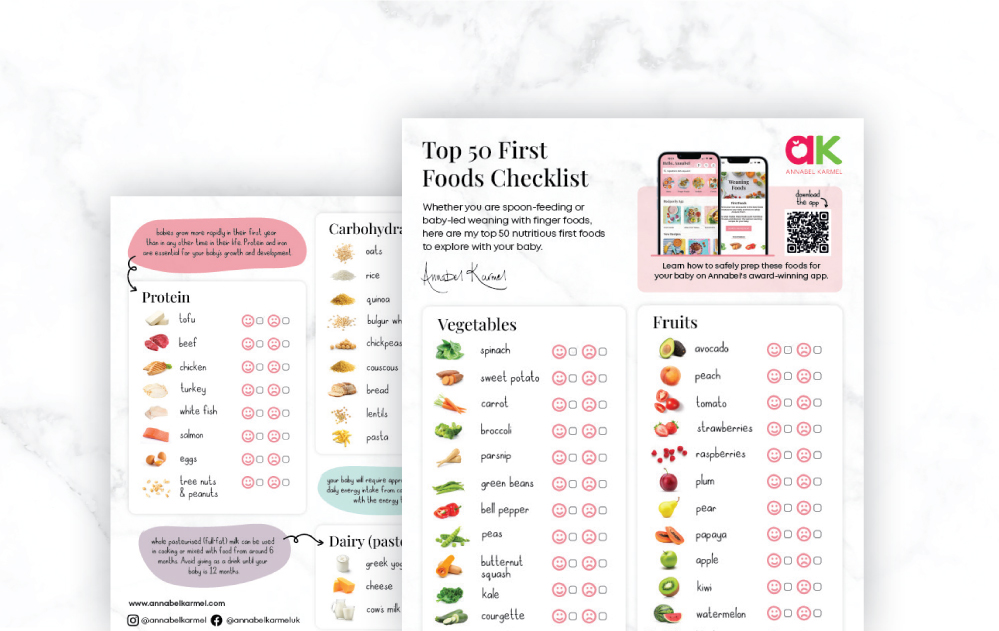We know that breastfeeding exclusively for the first six months of life is the best way you can feed your baby, however not all mothers can breastfeed, and some choose not to. When this is the case infant formulas are available, but it can be a minefield trying to understand which one is best for your baby.
This article aims to help you make an informed decision on choosing the right formula for your baby by interpreting the science behind infant formula. Despite over 100 years of research scientists have still not been able to identify all the components found in breast milk, therefore, infant formula companies cannot replicate breast milk exactly. There is not one infant formula that is closest to breast milk than any of the others, as well as breast milk being uniquely nutritionally matched to the baby it contains beneficial immune system defences called antibodies that are harmonised between the mother and her child.
All infant formula milk is made up of a balance of proteins, fats, carbohydrates, vitamins and minerals. There are strict regulations in place that must be followed by all formula manufacturers to ensure that the nutritional profile of infant milks are similar and meet certain standards. Almost all infant formula milks are based on cows milk protein, goats milk and soya protein are also occasionally used too.

First Stage & Second Stage Infant Formula
First stage infant formula and second stage infant formula are nutritionally the same. The difference between them is the type of protein that is used. First stage infant milk‘s are predominately whey protein and second stage infant milks – marketed for hungrier babies, contain more casein protein. Casein takes longer to digest because it forms a thicker curd in the stomach making babies feel fuller for longer. It won’t give a hungrier baby any more nutrition at all, and in fact, a baby who appears hungrier, demanding feeds more often or cluster feeds often needs more nutrients for her developmental stage. Whey based, first stage infant formula is the preferred alternative to breastmilk during the whole of your baby’s first year.
Goats Milk-Based Infant Formula
Goats milk based infant formula is increasing in popularity, however nutritionally it is no more superior to standard first stage infant milks based on cows milk. Some parents think that using a goats milk formula will reduce the incidence of milk allergy. However this is not the case, both cows milk and goats milk have the same allergenicity. Goats milk protein is not easier to digest either.
Anti-reflux or Anti-Regurgitation Formulas

Anti-reflux or anti-regurgitation formulas are also available. Parents often try these if their baby frequently posits after a feed or they suspect reflux. However, it is important to note that bringing up a small amount of milk after each feed is quite normal as it can take a few months for the ring of muscles at the bottom of your baby’s food pipe (called the lower oesophageal sphincter) to fully form. Sometimes just reducing the volume of feed and feeding little more often it’s all it takes to reduce positing.
These types of infant formula should be used with caution. Did you know that you make these milks up with cooler water rather than the hot water required for standard formula? This means that any harmful bacteria residing in the formula is not eradicated as it would be when making up standard infant formula. Babies are at greater risk of food poisoning bacteria. In addition, anti-reflux formula contain cereal-based thickeners yet cereals should be avoided until your baby is over six months of age. Seek advice from your health visitor or GP or ask for a referral to a Registered Dietitian if you are thinking about trying one of these.
If your baby is very uncomfortable after feeds, is crying and arching her back and generally experiencing discomfort, it’s important to go and see your GP. More often than not this isn’t reflux and other conditions should be explored. In my experience the anti-reflux or anti-regurgitation milks do not work in the majority of babies, true reflux needs medication in order to manage it.
Comfort Milk for Colicky Babies

Comfort milk is also available and is promoted for helping babies who are unsettled and colicky. Some manufacturers also say that comfort milks help with wind, colic or constipation. However, there is no research evidence to show that these milks reduce symptoms. Moreover, it is very common for babies to have colic during the first few weeks of life. Babies cry a lot (especially before 3 months of age) and need a lot of attention, cuddling and soothing, and quite often more so in the evenings! What does help is smaller, more frequent feeds with more frequent winding and burping during and after feeds to bring up trapped wind. Colic very often improves as your baby gets older, it’s best for your baby to continue on first stage infant formulas even if they do have these symptoms.
Soya Based Instant Formulas

Soya based infant formulas are also available however these are not suitable for babies under six months of age unless your baby has a rare inherited metabolic disorder called galactosaemia. This is because Soya is rich in Phyto-oestrogens which mimic sex hormones in the body. There is a theory that this may impact on the development of the sexual organs in boys, and until further research is available the recommendation is for soya to be avoided in very young babies. The carbohydrate in soya infant formula is glucose which is also damaging to emerging teeth.
Allergen Free Formula Milks

Another type of infant formula available are lactose-free milk’s. These should never be used unless under medical supervision. It is very rare for a baby to have true lactose intolerance, and still rare but slightly more common is cows milk protein allergy which is a very serious condition and a lactose-free formula will not successfully treat it. If your baby has symptoms of diarrhoea, vomiting, or signs of an allergic reaction such as eczema, a rash, red bumpy skin, facial swelling or breathing difficulties seek medical help for a proper diagnosis.
Diarrhoea can also be a sign of a tummy bug or infection. Sometimes babies develop transient lactose intolerance after a tummy bug. However, this is usually short-term and your GP or dietitian would advise you on when to re-introduce lactose. Lactose-free infant formula contains a different type of carbohydrate which is more damaging to your babies emerging teeth, therefore it’s really important that these formulas are used under supervision.
Cows Milk Allergy

Formula to treat cows milk protein allergy are also available however these are only available on prescription from your GP. If you suspect your baby has a cows milk protein allergy, see your doctor for a formal diagnosis. your doctor will refer you immediately to a Registered Dietitian in order to commence a ‘hydrolysed’ formula and advise you on a cows milk protein-free weaning diet. It is essential you do this with the support of a Dietitian as cutting out dairy can have a detrimental effect on your babies growth and development.
Protecting Your Baby from Eczema and Allergies

There are also formula milks on the market that suggest they may protect your baby from developing eczema and allergies should you have a family history. However, none of these has enough research evidence behind them to back up their claims. There is a lot of evidence that breastfeeding is the best way to protect your baby from developing an allergy.
Vegetarian or Vegan Formula

If you are vegetarian or vegan there is a very limited choice in terms of infant formula. Many have essential fatty acid derived from fish oils and animal rennet added to their infant formula. Vitamin D is added to all formula but is sourced from sheep’s wool so there are no vegan infant formulas available at present.
The recommendation for those who want to bring up their baby vegan is for mothers to breastfeed for at least the first year of life then alternative plant-based milks can be introduced into the diet under the supervision of a Dietitian. Plant-based milks are extremely low in nutritional value so shouldn’t be used unless under dietetic supervision.
For more information click here to visit Sarah Almond Bushell’s website





























